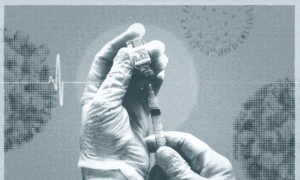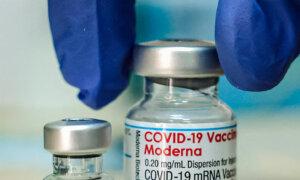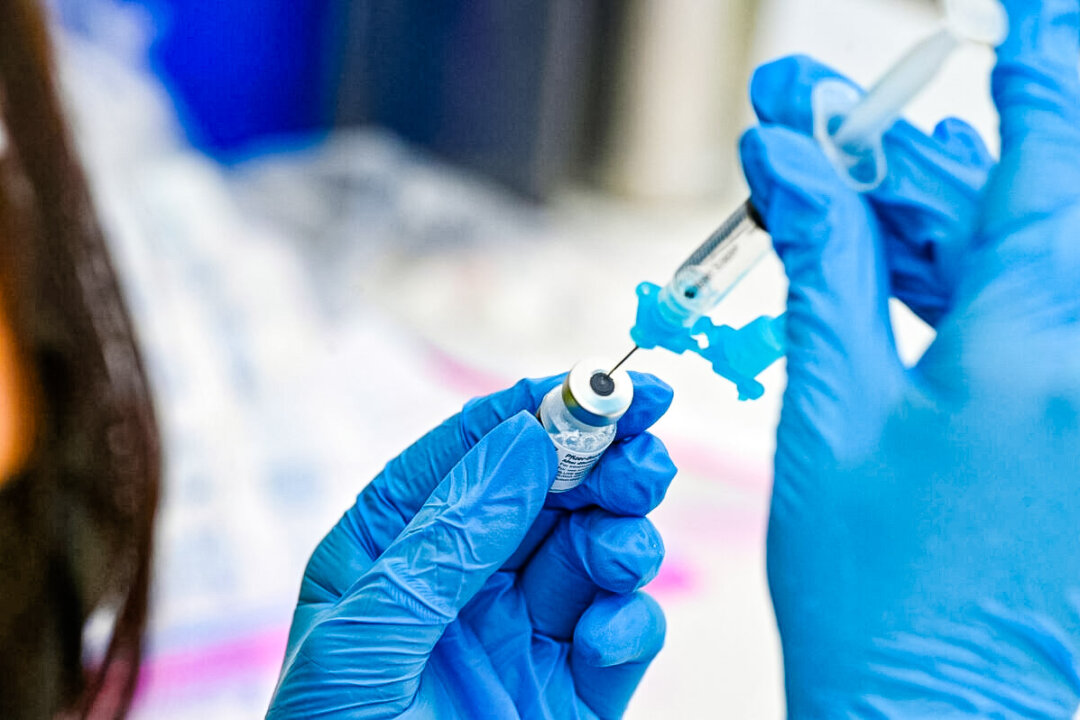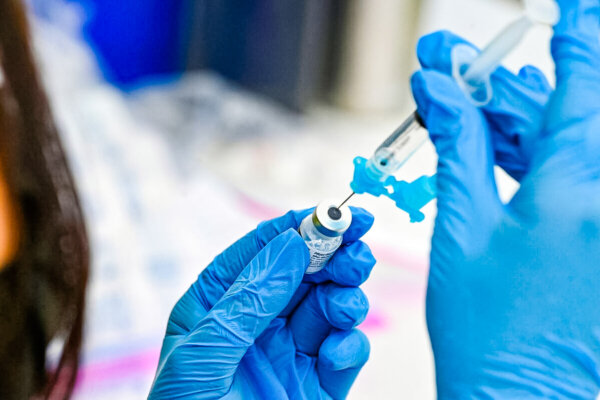People With More COVID-19 Vaccine Doses More Likely to Contract COVID-19: Study
People who received more than one dose of a COVID-19 vaccine were more likely to contract COVID-19, according to a new study.
An analysis of data from Cleveland Clinic employees found that people who received two or more doses were at higher risk of COVID-19, Dr. Nabin Shrestha and his co-authors reported.
The risk of contracting COVID-19 was 1.5 times higher for those who received two doses, 1.95 times higher for those who received three doses, and 2.5 times higher for those who received more than three doses, the researchers found. The higher risk was compared to people who received zero or one dose of a vaccine.
Even after adjusting for variables, the elevated risk remained.
Dr. Robert Malone, a vaccine researcher who was not involved in the paper, told The Epoch Times that the paper served as “another acknowledgment that the products are not effective or are at very low effectiveness and are contributing to negative effectiveness [down the line].”
Authors disclosed no conflicts of interest and acknowledged at least five limitations, including how they used a proxy for infection with JN.1.
People’s immune systems being trained to react to older virus strains at the expense of protection against newer variants is one theory for why the vaccinated might be more prone to infection.
“Multiple vaccine doses may have the effect of antibody-dependent enhancement or ‘original antigenic sin,’ which increase the infection response disproportionally to antibodies generated from the first vaccine dose, rather than from the current vaccine or the current infection, making the antibody response less effective,” Dr. Harvey Risch, professor emeritus of epidemiology at the Yale School of Public Health, told The Epoch Times in an email after reviewing the paper.
Dr. Shrestha, who did not respond to a request for comment, and the Cleveland Clinic researchers aimed to analyze the effectiveness of the XBB.1.5 shots against JN.1, which displaced XBB.1.5 before the end of 2023.
To do so, they analyzed the incidence of COVID-19 among Cleveland Clinic employees from Dec. 31, 2023, to April 22, 2024.
Among approximately 47,500 employees included in the study, 838 tested positive for COVID-19 during that period.
Unadjusted data showed no difference between people who received one of the updated shots and people who didn’t, but after adjusting for age and other factors, the researchers estimated the shots provided 23 percent effectiveness against infection.
Federal and global guidelines consider vaccines ineffective if they provide under 50 percent shielding.
The number of severe illnesses among the study population was too small to estimate effectiveness against severe illness, the researchers said.
Listed limitations included the inability to separate symptomatic and asymptomatic infections. No conflicts of interest were reported and authors said they received no funding.






